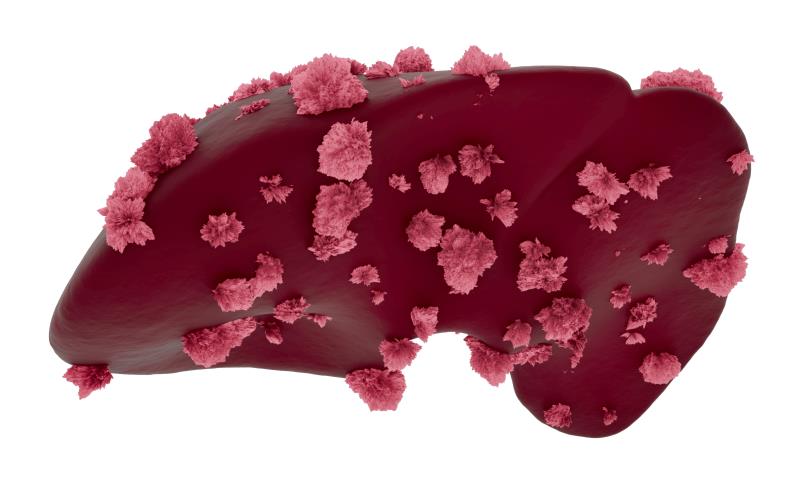Nivolumab-ipilimumab combo may benefit Asian patients with advanced HCC





A subgroup analysis of Asian patients enrolled in the CheckMate 040* trial presented at ESMO GI 2020 showed that the nivolumab + ipilimumab (NIVO + IPI) combination regimen had an efficacy and safety profile that was similar to that of the overall population.
The researchers conducted a subanalysis of 90 Asian** patients with advanced hepatocellular carcinoma (HCC) who were previously treated with sorafenib. They had been randomized to receive NIVO 1 mg/kg + IPI 3 mg/kg Q3W for four doses (arm A; n=34), NIVO 3 mg/kg + IPI 1 mg/kg Q3W for four doses (arm B; n=27), or NIVO 3 mg/kg Q2W + IPI 1 mg/kg Q6W (arm C; n=29). Both A and B arms were followed by nivolumab 240 mg IV Q2W flat dose. All patients continued treatment until intolerable toxicity or disease progression. [ESMO GI 2020, abstract O-5]
Asian patients treated in arm A had the longest median overall survival (OS) than those treated in arms B and C (16.4 vs 11.8 and 11.2 months, respectively), which was similar to the overall population (22.8 months vs 12.5 and 12.7 months).
The objective response rate was 24.0, 33.0, and 31.0 percent in arms A, B, and C, respectively, with a shorter median duration of response (9.8, 15.2, and 11.1 months) among the Asian population vs the overall population (17.5, 22.2, and 16.6 months).
Disease control rate was highest in arm A (50 percent vs 41 percent [arm B] and 45 percent [arm C]). These results were similar to that found in the overall population (54, 43, and 49 percent, respectively).
The rate of progressive disease was lowest in arm A compared with the other two arms (47 percent vs 56 percent [arm B] and 52 percent [arm C]), and was similar to the rates observed in the overall population (40 percent vs 49 percent [arm B] and 43 percent [arm C]).
Rates of treatment-related adverse events (TRAEs) of any grade were comparable between the Asian and overall populations (100, 70, and 72 percent for arms A, B, and C, respectively, vs 94, 71, and 79 percent). “[The] reported AEs were manageable and no new safety signals were identified,” said lead author Dr Thomas Yau from the University of Hong Kong in Hong Kong, China. “In general, the proportion, type, and severity of TRAEs were similar in Asian patients and the overall population”.
The initial results of the phase I/II CheckMate 040 study led to US FDA approval of the NIVO + IPI combination regimen for sorafenib-treated patients with HCC. [ASCO 2019, abstract 4012] The findings of the current subanalysis appear to suggest that the effect of this combo regimen may be applicable specifically to the Asian population.
“In the NIVO + IPI combination cohort of CheckMate 040, clinically meaningful responses were observed overall and in the Asian subpopulation,” Yau said.
“The safety profiles for the NIVO + IPI combinations were [also] similar between the overall population and Asian subpopulation,” he added.
*CheckMate 040: An immuno-therapy study to evaluate the effectiveness, safety and tolerability of nivolumab or nivolumab in combination with other agents in patients with advanced liver cancer
**Asians: Patients identified as Chinese (including Hong Kong and Taiwan), Japanese, or Korean